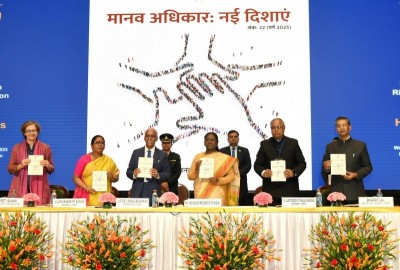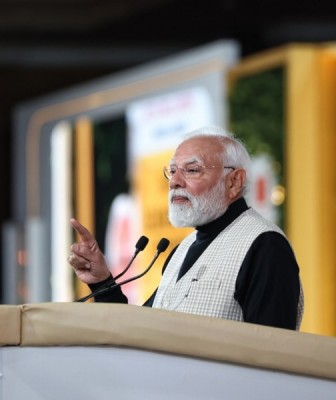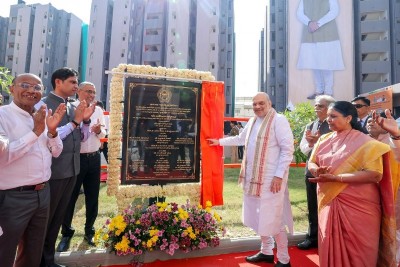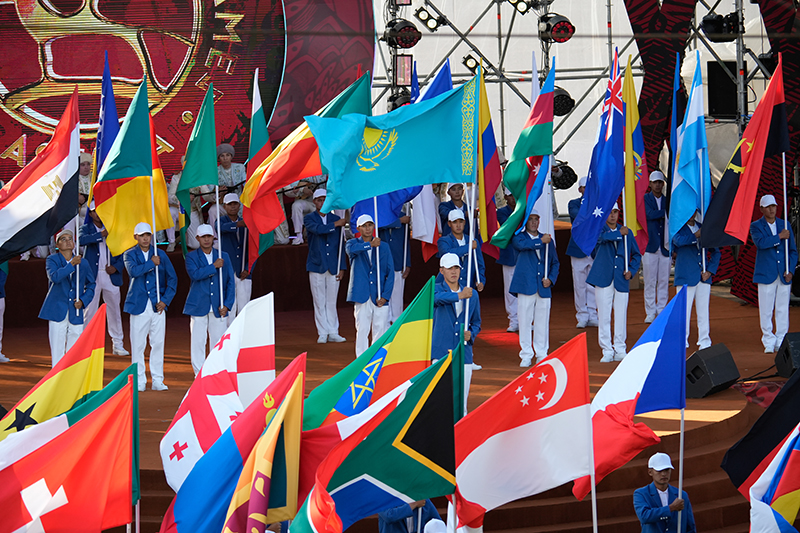 Kazakhstan
Kazakhstan
The Fifth World Nomad Games in Kazakhstan: Embracing Tradition Through Sports
The successful conclusion of the Fifth World Nomad Games (WNG) this month demonstrated Kazakhstan's comprehensive approach to soft power in Central Asia. Astana successfully promoted its cultural legacy, established connections with neighbouring countries, and improved its reputation abroad as a host. Kazakhstan consolidates its status as a vital cultural and diplomatic influencer in the region by using the Games platform to celebrate nomadic customs while also pushing its larger geopolitical objectives. Dr Pravesh Kumar Gupta writes
Kazakhstan hosted the Fifth World Nomad Games (WNG) from September 7–13, 2024, in its capital city Astana. Since its inception in 2012, the World Nomad Games (WNG) has expanded into a notable platform showcasing the traditional sports of many nomadic cultures worldwide.
More than just a sports event, WNG provides a significant opportunity for different nomadic cultures across the world to exchange their cultural values and heritage. The fifth edition of WNG, held in Kazakhstan, further expanded the scale and scope of the games.
Approximately 2,800 participants from 89 countries took part, representing diverse cultures and traditions. The event included a variety of traditional nomadic sports, allowing players and spectators to immerse themselves in the rich legacy of nomadic cultures.
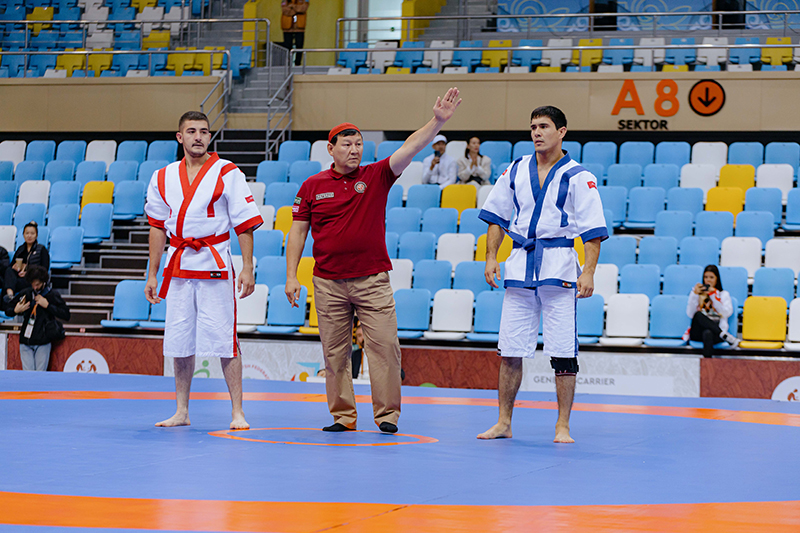
In addition to traditional sports like long-distance horse racing and archery, the games celebrated Kazakh cuisine, traditional attire, and even the craft of epic storytelling. The aim is to conserve and safeguard steppe and nomadic cultures, which are increasingly threatened by modernization, globalization, and climate change.
Within a week, competitions in twenty-one sports were organized. Additionally, there have been regular cultural events. As part of the academic programme, a scientific conference titled "Nomads: History, Knowledge, Lessons" was held to help people realise the significance of maintaining and resurrecting the nomadic culture.
The Ethno Village (which carried different yurts representing all the regions of Kazakhstan) hosted almost 100 cultural events throughout the games. Every day, various regions of Kazakhstan staged concerts, artisan fairs, exhibits, and Aitys competitions (public singing contests).
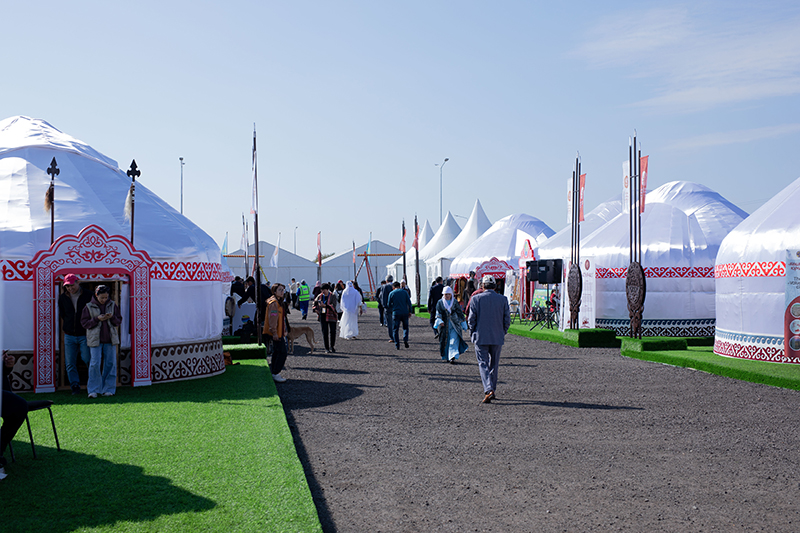
The Central Asian countries have done exceptionally well in modern-day sports. Recently, Central Asian countries performed splendidly at the Olympic Games in Paris, France, as well as the Paralympic Games in the same city.
Kazakhstan, the largest in terms of territory and economic potential, has a sizable young population. While excelling in contemporary sports, Kazakh youngsters also learn and participate in ancient activities. WNG is an excellent example of this combination of heritage and modernity.
On September 8, the WNG had its grand opening ceremony at the Astana Arena Stadium. Kazakh President Kasseym Zomart Tokayev attended the inauguration event, which was also attended by Uzbek President Shavkat Mirziyoyev, Kyrgyz President Sadyr Zhaparov, and Gurbanguly Berdimuhanedoev, Chairman of Turkmenistan's People's Council. This illustrates the growing level of cooperation between Central Asian countries, which was not as obvious a few years ago.
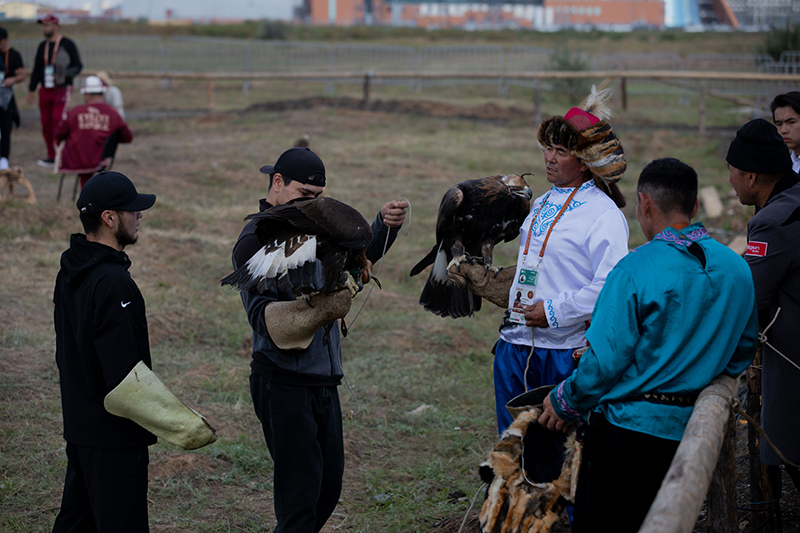
At the culmination of the WNG, the host country gained a maximum number of medals. With 112 medals, including 43 gold, 32 silver, and 37 bronze. After earning 65 medals in all—19 gold, 21 silver, and 25 bronze—Kyrgyzstan came in second. In the medal rankings, Uzbekistan came in third with 49 medals, comprising 12 gold, 12 silver, and 25 bronze. The largest number of athletes came from different regions of Kazakhstan, totalling 195 individuals. Kyrgyzstan sent 172 athletes, and Russia had 144. The Kazakh kures (Kazakh wrestling) event had the most participation, with 266 athletes.
American cowboys (the US Kokpar team) also competed in the fifth World Nomad Games. In addition to Kokpar (Horseback Rugby), the US athletes also participated in Horseback wrestling. This is an extension of the United States' increased interest in the region and a means of effectively increasing its soft power in Central Asia and Kazakhstan.
Indian athletes also participated in these games. India's traditional archery squad, representing the Traditional Archery Society of Ladakh, competed against the best in the world.
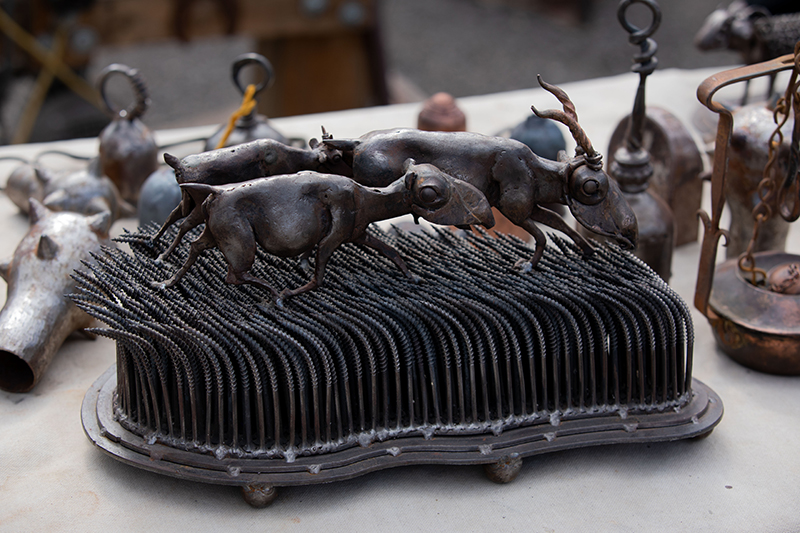
In Traditional Archery, 120 participants competed at three different distances: 70 meters, 60 meters, and 30 meters. The Indian squad added to the colourful tapestry of the World Nomad Games and showed their ability. India earned five medals in the WNG, including one gold and four bronze in traditional archery and Kurash (Belt Wrestling).
India earned one gold medal in the women's Kurash tournament when Pinky Balhara, in the 57 kg category, defeated her Kazakhstani opponent. India and Kazakhstan have a deep cultural relationship. In Kazakhstan, Bollywood has immense popularity. Movies starring Mithun Chakravarty, Shahrukh Khan are well-liked. India has a great deal of opportunity to strengthen its soft power in Kazakhstan through popular culture or ethnic sports.
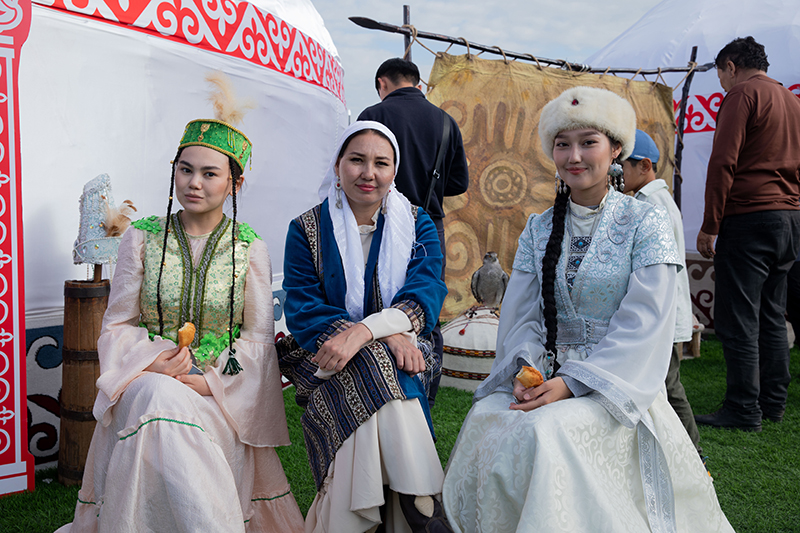
Fifth WNG: Showcasing the Soft Power Potential of Kazakhstan
In Central Asia, WNG became a potent symbol of Kazakhstan's soft power. By showcasing traditional nomadic sports and cultural legacy, this international event allowed Kazakhstan to spread its influence and ideals throughout the region. Kazakhstan showed its commitment to protecting and advancing nomadic customs while fostering stronger diplomatic and cultural links with surrounding nations by actively participating in and supporting the games.
Furthermore, Kazakhstan used the World Nomad Games as a platform to strengthen its soft power internationally. Kazakhstan presented an image of cultural dynamism and global openness by hosting the event and actively promoting nomadic customs. Consequently, Kazakhstan's involvement in the games helped to create a favorable impression of the nation as a dynamic, culturally diverse country that is deeply committed to maintaining its nomadic history.
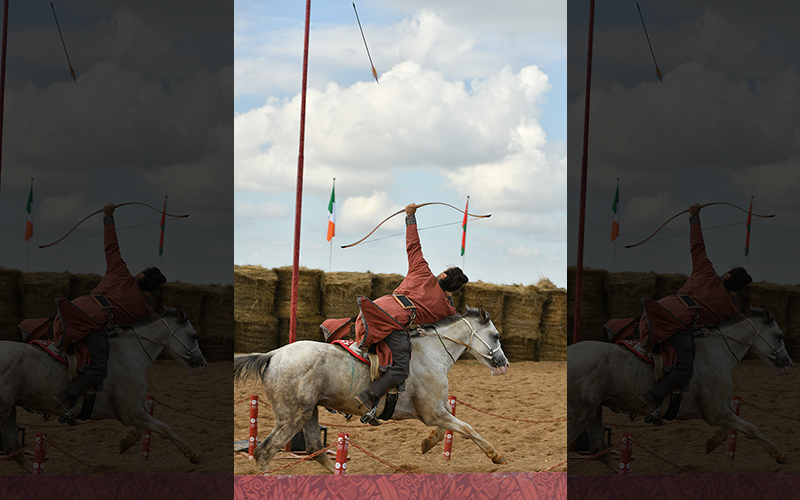
Kazakhstan derived commercial and tourism benefits from the Fifth World Nomad Games in addition to its cultural significance. A worldwide audience was given the chance to witness the nation's natural beauty, hospitality, and cultural attractions as the event highlighted the nation's tourist potential. Kazakhstan took use of the opportunity to promote its tourist sector and draw in foreign visitors by organizing cultural events and exhibitions during the games. This helped to further the country's economic development and progress.
( Dr. Pravesh Kumar Gupta is Associate Fellow - Eurasia, Vivekananda International Foundation. He can be reached at pravesh@vifindia.org)
Support Our Journalism
We cannot do without you.. your contribution supports unbiased journalism
IBNS is not driven by any ism- not wokeism, not racism, not skewed secularism, not hyper right-wing or left liberal ideals, nor by any hardline religious beliefs or hyper nationalism. We want to serve you good old objective news, as they are. We do not judge or preach. We let people decide for themselves. We only try to present factual and well-sourced news.





